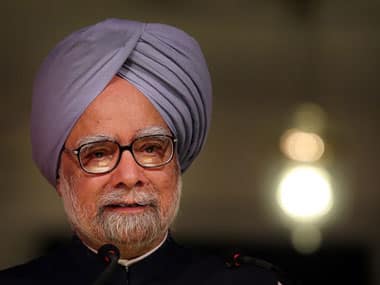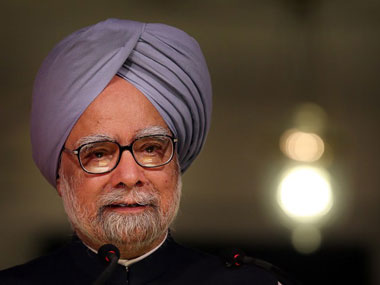In 1947, as Pakistani irregular forces raced east towards Srinagar, prime minister Jawaharlal Nehru outlined the strategic challenge that has haunted every Indian leader since. “The invasion of Kashmir”, he observed pithily, “is not an accidental affair resulting from the fanaticism or exuberance of the tribesmen, but a well organised business with the backing of the state”. “We have in effect to deal with a state carrying out an informal war, but nevertheless a war”. [caption id=“attachment_1140707” align=“alignleft” width=“380”]  Manmohan Singh. AFP image[/caption] For almost ten years now, Manmohan Singh has pursued a single-minded policy he believed would end that war: a policy which came within a hair’s breadth of succeeding. Yet, as fighting rages along the Line of Control, and terrorism in Kashmir is going through the first year-on-year upswing in a decade, it’s evident that Pakistan’s generals don’t share the prime minister’s dreams. Later today, as Singh meets with prime minister Nawaz Sharif, the two most powerless leaders either country has had in decades will be engaging in a meaningless charade. It’s time for prime minister Singh to throw away his peace pipe—and for India’s strategic establishment to go back to the drawing board. This much is evident: Manmohan Singh has long lost his compass on the purpose of dialogue with Pakistan. For weeks, high officials have been telling journalists that the meeting would only take place if Nawaz Sharif’s speech to the general assembly addressed India’s deepening concerns on cross-border terrorism. External Affairs Minister Salman Khurshid publicly linked the meeting to “being satisfied [on] accountability on the Mumbai outrage” and “specific expectations that we have about dismantling of terrorist infrastructure in Pakistan”. Little in Sharif’s anodyne speech spoke to those expectations, bar some for-the-record mumbling about Pakistan’s resolve to combat terrorism. Even this was tempered by complaints about drone attacks. There’s worse: Sharif’s speech saw a reversion to Pakistan’s old polemic on Kashmir, calling on “the international community to give an opportunity to the Kashmiris to decide their future peacefully‚ in accordance with the United Nations Security Council resolutions”. This has, parenthetically, been a lietmotif of Pakistani official polemic for decades: in 1950, governor-general Khwaja Nazimuddin had provided the cut-and-paste text for countless subsequent speeches, saying “Pakistan would remain incomplete until the whole of Kashmir is liberated”. In 2003, though, military ruler General Pervez Musharraf famously dropped Pakistan’s calls for a plebiscite in Kashmir. “We are for United Nations Security Council Resolutions [on Kashmir]” he said. “However, now we have left that aside.” “If we want to resolve this issue, both sides need to talk to each other with flexibility, coming beyond stated positions, meeting halfway somewhere”. Later, president Asif Ali Zardari told CNN-IBN’s Karan Thapar that a solution to Kashmir could be left to “coming generations”. In another interview, he even called the jihadists in Kashmir “terrorists”. The new thinking on Kashmir had emerged through secret diplomacy that emerged from the murderous 2001-2002 near-war between India and Pakistan. From mid-2002, an extraordinary series of secret meetings and contacts began to explore how future crisis might be averted. From unsigned notes I had revealed in 2009, we know the two governments were contemplating a four point deal: the transformation of the Line of Control into a border; free movement across the LoC; greater federal autonomy for both sides of Jammu and Kashmir; and gradually-phased cutbacks of troops as jihadist violence declined. It’s important to note, though, that this apparently-successful peace process was built not on Manmohan Singh’s passions, but a conjunction of historically anomalous circumstances. Following 9/11, the scholar Syed Rifaat Husain has pointed out in a thoughtful paper, the United States pressured Pakistan to scale back the jihad in Jammu and Kashmir. Inside Pakistan, jihadist violence spiraled, and the economy tanked. Lieutenant-General Moinuddin Haider, General Pervez Musharraf’s interior minister, told his boss: “Mr President, your economic plan will not work, people will not invest, if you don’t get rid of extremists” This line of thinking, Sharif’s speech makes clear, is drawing to an end. The United States is leaving Afghanistan, and subcontracting the task of keeping the peace in Afghanistan to the ISI. Pakistan’s own army is besieged by the jihadists it nurtured—and hopes to win back some of its legitimacy among at least some of its old clients. It isn’t, of course, that promises to act on terrorism would have meant much. Not long after the 26/11 attacks, Pakistan’s permanent representative at the United Nations had told the Security Council of “Pakistan’s determination to take action and not to allow its territory to be used for terrorism”. Indeed, Haroon went on, Pakistan “on receiving communication from the Security Council shall proscribe the JUD [Lashkar’s parent organisation, Jama’at-ud-Dawa] and take other consequential actions, as required, including the freezing of assets”. The Lashkar disdainfully snorted, demanding for the release of its leader, indicted 26/11 architect Hafiz Muhammad Saeed, and promising to continue its “movement for the defence of Pakistan and the hatred for India among people”. We know who won–and that tells us something important about who really matters in Pakistan. To those inside the Indian establishment who’ve argued for a more muscular Pakistan policy—including the use of offensive covert means to retaliate against jihadists, and greater aggression on the Line of Control—the government’s argument case against has been lucid. India’s overarching strategic objective, it notes, is economic growth. That, in turn, means avoiding military crisis, even if India has to roll with the punches when they’re dished out from time to time. Manmohan Singh’s advisors understand that Pakistan’s generals want to continue the informal war, both to ensure their continued primacy in the country’s politics and to inveigle themselves with increasingly-powerful jihadist forces. Yet, their argument goes, engaging Pakistan’s politicians gives them an incentive to push back against the army. It also denies the jihadists public legitimacy that would accrue through a hostile relationship with India. It’s an entirely plausible argument, but the experience of the last decade hasn’t stood it up. Instead, the generals have got a free pass to pursue offensive strategies against India—while New Delhi keeps talking to political leaders with grand visions of peace, but no muscle to realise them. There’s plenty of carrots, but no stick. The horse grazes, but doesn’t move where India hopes. “The last argument is the sword”, said Nurul Amin, chief minister of East Pakistan in 1950. He might or might not have been right. But if there’s one lesson India ought have learned from this last decade, it’s this: talking peace is that much more persuasive when your enemies know you have a sharp blade handy.
Ever since 1947, Pakistan has waged what Jawaharlal Nehru called an ‘informal war’ . Manmohan Singh’s ten year project to end it has failed
Advertisement
End of Article


)

)
)
)
)
)
)
)
)



